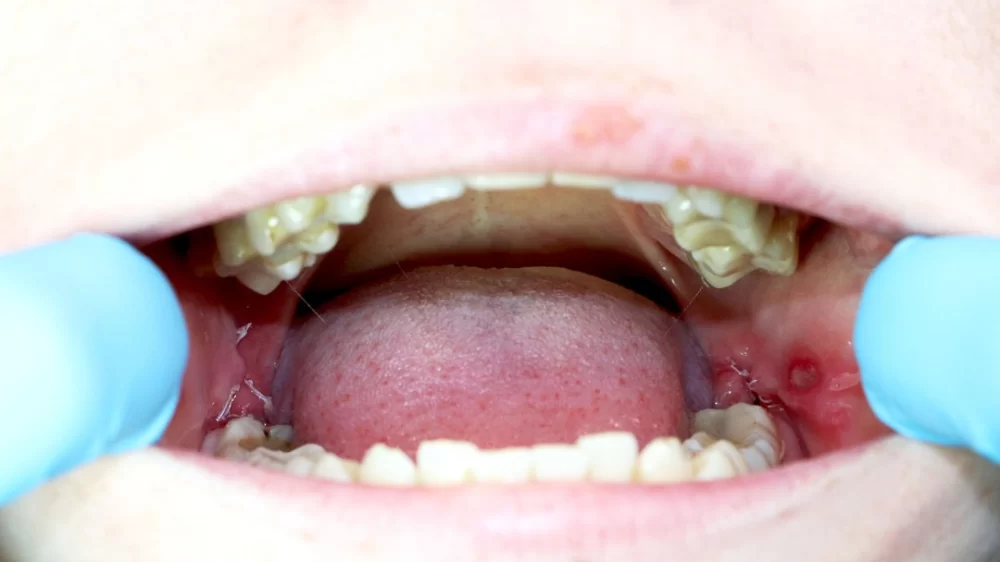
Taking Care of Your Wisdom Teeth: What You Need to Know
When I first heard about wisdom teeth, I didn't really understand the fuss. They seemed like just another part of growing up, a normal stage of life. But, as I began to experience some discomfort and learned more, I realized that wisdom teeth require more attention than most people think. Whether you have your wisdom teeth fully erupted or are considering removal, understanding how to care for them is essential for maintaining good oral health.
What Are Wisdom Teeth and Why Do They Matter?
Wisdom teeth are the third set of molars located at the back of your mouth. They typically emerge during late adolescence or early adulthood—around ages 17 to 25. For some people, these teeth come in without any problems, but for many of us, they can cause discomfort, pain, or even long-term oral issues if not properly managed.
The wisdom teeth are known for their role in our evolutionary past, where they helped our ancestors chew tougher foods. However, modern diets don't require such strong teeth, and as a result, these molars often become problematic. Whether they emerge fully, partially, or not at all, the way you care for your wisdom teeth can make all the difference in your overall dental health.
Common Wisdom Teeth Issues
Throughout my own experience and speaking with friends, I’ve noticed that there are several common issues that many face when dealing with wisdom teeth:
- Pain: As wisdom teeth emerge, they can cause pain in the gums or jaw. This is especially common if the tooth is impacted, meaning it can't fully break through the gumline.
- Infection: If the wisdom tooth partially erupts, food and bacteria can get trapped, leading to infections that can cause swelling, bad breath, and tenderness.
- Cavities: Because wisdom teeth are located so far back in the mouth, they are harder to clean properly. This increases the risk of cavities forming in these teeth.
- Misalignment: Wisdom teeth can push against neighboring teeth, causing misalignment and even shifting other teeth out of place.
How to Take Care of Your Wisdom Teeth
Whether you are experiencing discomfort or just want to ensure your wisdom teeth are healthy, there are several steps you can take to care for them. I've gathered some essential tips based on my experience and the advice of dental professionals to help you manage your wisdom teeth with ease.
1. Maintain Excellent Oral Hygiene
The foundation of good oral health is excellent hygiene. This is especially important for wisdom teeth, which are located at the back of your mouth and can be more difficult to clean. Be sure to brush your teeth twice a day using a soft-bristled toothbrush, and floss regularly to remove any food particles and plaque that could lead to cavities or infections. If you're worried about reaching your back molars, consider using a dental tool like an interproximal brush to get between your wisdom teeth and other molars.
2. Watch for Signs of Infection
If you notice swelling, tenderness, or persistent bad breath, it might be a sign of infection around your wisdom teeth. Keep an eye out for these symptoms and make sure to visit your dentist as soon as possible for a check-up. In some cases, you may need antibiotics to help clear up an infection or to prevent it from spreading to other areas of the mouth.
3. Manage Pain Effectively
If your wisdom teeth are giving you pain, there are several ways to manage discomfort:
- Cold Compress: Applying a cold compress to the outside of your face near the affected area can help reduce swelling and numb the pain.
- Over-the-counter pain relief: Anti-inflammatory medications like ibuprofen can help alleviate pain and reduce inflammation. Be sure to follow the instructions on the packaging.
- Saltwater Rinse: Rinsing your mouth with warm salt water can help soothe irritated gums and promote healing.
4. Consider Removal if Necessary
In some cases, wisdom teeth can cause significant pain or long-term oral problems. If you notice that your wisdom teeth are impacted or causing other issues, it may be time to consider having them removed. This is a decision that should be made with the help of your dentist or oral surgeon. Removal is typically a straightforward procedure that can save you from future complications, such as tooth decay, infections, or alignment issues.
5. Follow Your Dentist’s Advice
Every case is unique, and your dentist is the best person to guide you on how to care for your wisdom teeth. After an evaluation, they may suggest regular monitoring or recommend more advanced treatments, such as a referral to an oral surgeon for wisdom tooth removal. Make sure to schedule regular dental check-ups to stay on top of your oral health and prevent issues from escalating.
My Personal Story: A Journey with Wisdom Teeth
I'll never forget the day my wisdom teeth started causing me trouble. I had noticed a dull ache in the back of my mouth for weeks, but it wasn't until the pain intensified that I finally decided to see my dentist. They took an X-ray and confirmed that my wisdom teeth were impacted. The dentist explained that because they were pressing against my other teeth, they were causing the pain and could lead to further complications if left untreated.
I decided to have my wisdom teeth removed, and although the procedure itself wasn’t as daunting as I’d imagined, the recovery was a bit challenging. I followed all the aftercare instructions my dentist gave me: ice packs for swelling, painkillers for discomfort, and saltwater rinses to keep the area clean. It took a few weeks to fully heal, but once I was over the recovery, I noticed how much better my mouth felt—no more discomfort, no more worrying about infections. It was definitely worth it.
Maintaining Healthy Teeth Post-Surgery
After the removal of your wisdom teeth, it's crucial to continue taking good care of your oral health. I made sure to avoid hard or crunchy foods for a few days after the surgery to avoid irritating the healing area. Keeping up with my regular brushing and flossing routine helped me maintain a healthy smile and prevented any future problems from cropping up.
Taking care of your wisdom teeth isn’t just about pain management or avoiding infection—it’s about understanding what your body needs and how you can maintain healthy teeth for a lifetime. Whether you decide to keep them or opt for removal, be sure to follow the tips above for the best possible outcome.







 Millennium Park Smiles4.0 (179 review)
Millennium Park Smiles4.0 (179 review) Laurie Gormley DDS3.0 (6 review)
Laurie Gormley DDS3.0 (6 review) Alpha Dental Excellence4.0 (829 review)
Alpha Dental Excellence4.0 (829 review) Dr. Gary Manukyan, DDS4.0 (35 review)
Dr. Gary Manukyan, DDS4.0 (35 review) Gessel Orthodontics5.0 (565 review)
Gessel Orthodontics5.0 (565 review) Lind Dental Care5.0 (97 review)
Lind Dental Care5.0 (97 review) The Importance of Oral Health Education During Pregnancy for a Healthy Pregnancy
The Importance of Oral Health Education During Pregnancy for a Healthy Pregnancy Best Tips for Brushing Your Teeth Properly for Healthy Gums: Essential Techniques for Oral Health
Best Tips for Brushing Your Teeth Properly for Healthy Gums: Essential Techniques for Oral Health Why Skipping Dental Checkups Can Lead to Bigger Oral Health Problems
Why Skipping Dental Checkups Can Lead to Bigger Oral Health Problems Advantages of Porcelain Dental Restorations
Advantages of Porcelain Dental Restorations How Can Diabetes Cause Tooth and Gum Problems? Preventing and Managing Oral Health Issues
How Can Diabetes Cause Tooth and Gum Problems? Preventing and Managing Oral Health Issues Healthy Habits for Promoting Good Oral Health and Hygiene: Tips for a Healthy Smile
Healthy Habits for Promoting Good Oral Health and Hygiene: Tips for a Healthy Smile